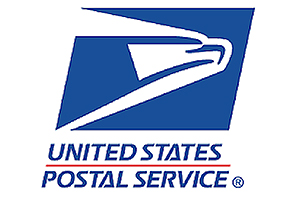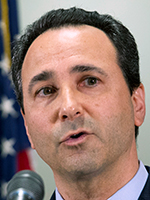Amazon, FedEx, UPS Could Gain from Trump Threat to Leave Postal Union

U.S. e-commerce companies including Amazon.com and shippers such as FedEx Corp. and UPS Inc. stand to gain from the Trump administration’s move Oct. 17 to withdraw from an international postal agreement.

The White House said the United States will pull out of the agreement unless the governing body that regulates foreign mail acts quickly to end the highly subsidized rates that allow e-commerce businesses in countries such as China to undercut American competitors. That would open the door for large shipping companies such as FedEx and UPS to compete with the U.S. Postal Service on a level playing field. It also would help online retailers such as Amazon fend off cheap foreign competitors.
FedEx Corp. is No. 2 on the Transport Topics Top 100 list of the largest for-hire carriers in North America and No. 8 on the TT list of the Top 50 Logistics Companies in North America. UPS Inc. is No. 1 on the Transport Topics Top 100 list of the largest for-hire carriers in North America and No. 2 on the TT list of the Top 50 Logistics Companies in North America.
American manufacturers trying to sell goods domestically through e-commerce likewise would benefit if subsidies were lifted. “This is a big deal for manufacturers,” said Patrick Hedren, vice president for labor, legal and regulatory policy at the National Association of Manufacturers.

But some U.S. exporters have argued against withdrawing from the Universal Postal Union, fearing rates charged by foreign postal services could rise in retaliation and make their products less competitive abroad.
Members of the International Mailers Advisory Group, including DHL e-commerce, have advocated for a negotiated solution within the Universal Postal Union. DHL is owned by Deutsche Post AG.

A letter of denunciation is being sent to the UPU today notifying them of the U.S. intent to terminate the agreement, White House officials told reporters Oct. 17 on a conference call.
The notification takes one year to go into effect, and the United States hopes to negotiate new postal rates in the meantime, the officials said. The subsidy flows through the below-cost rates—known as terminal dues—that foreign postal services pay to USPS to deliver packages lighter than 4.4 pounds, which encompasses most e-commerce.
Hope to Stay Put
Sen. Bill Cassidy (R-La.), who has sponsored legislation (S. 2638) to end the subsidies from terminal dues, applauded the administration’s move.“President Trump is standing up for American workers and companies who are being hurt by this outdated, unfair international agreement on shipping rates,” Cassidy said in a statement.
If the United States can resolve the rate issue within a year, it can easily rescind that notification, a White House official said.

In the meantime, the United States will be engaging with countries around the world on this issue, the official said. The administration’s strategy is to get to a point where it can self-declare its postal rates, another official said. The U.S. would prefer to stay within the UPU because it provides benefits, he said.
Domestically, the United States is starting the process of a thorough, legal regulatory process of self-declaring rates, which could take effect as early as six months, another official said. Delay could come from arbitration, which is possible under the UPU framework, he said.
The announcement follows meetings by two key policymaking committees in advance of a weeklong UPU meeting that began Oct.14 in Bern, Switzerland.
The anti-competitive nature of the [Universal Postal Union] has concerned the U.S. government since the Reagan administration.
Postal Regulatory Commission Chairman Robert Taub
Earlier Effort Failed
The action follows the failure of a U.S. delegation to win a rule change at the September UPU meeting to fully reimburse USPS for the costs of domestic delivery.
In August, President Donald Trump issued a memorandum directing the U.S. delegation to ensure that rates charged for delivery of foreign-origin mail do not favor foreign mailers over domestic mailers. “The anti-competitive nature of the [Universal Postal Union] has concerned the U.S. government since the Reagan administration,” Postal Regulatory Commission Chairman Robert Taub said.





